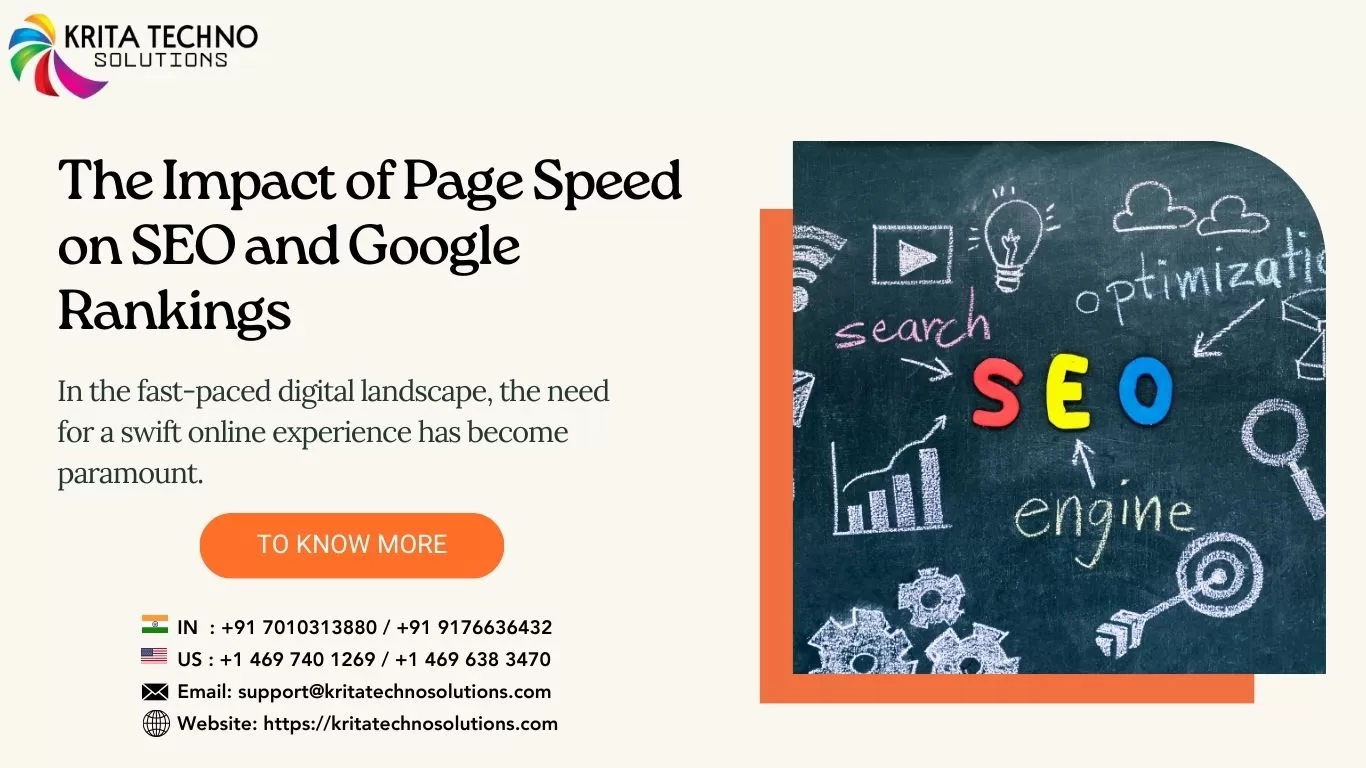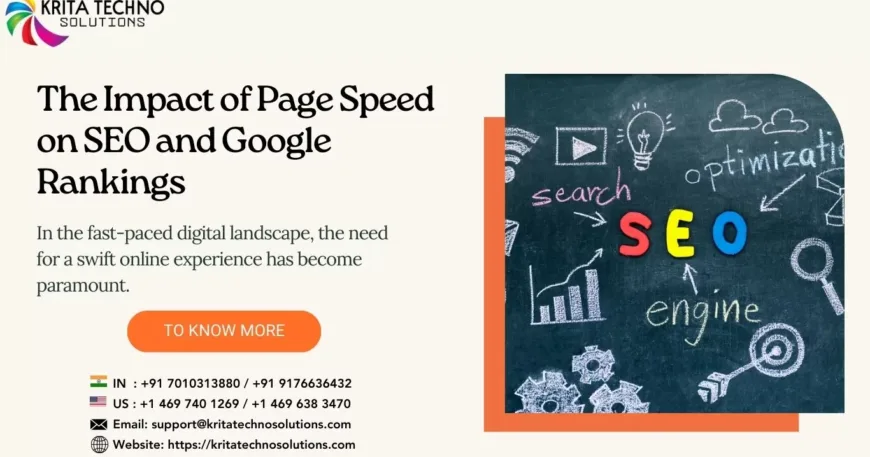
In the fast-paced digital landscape, the need for a swift online experience has become paramount. Page speed, the time it takes for a web page to load, is not just about user satisfaction but plays a crucial role in determining your website’s search engine optimization (SEO) and Google rankings.
With 9+ years of experience in the industry and a wealth of knowledge about the latest Web technologies, media trends and best practices, we are well-equipped to help you achieve your marketing goals.
1. The Need for Speed in the Digital Era:
User attention spans are dwindling, and expectations for near-instantaneous online experiences are on the rise. Google recognizes this shift and incorporates page speed as a crucial factor in its ranking algorithms.
2. User Experience:
A slow-loading website can lead to higher bounce rates as impatient users abandon ship in search of quicker alternatives. Google takes user experience seriously and rewards websites that provide a seamless and rapid browsing experience.
3. Mobile-First Indexing:
With the dominance of mobile devices, Google has transitioned to mobile-first indexing. This means that page speed on mobile devices is a significant factor in determining search rankings. Websites optimized for quick loading on smartphones gain an edge in search results.
4. Core Web Vitals:
Google’s Core Web Vitals, including metrics like Largest Contentful Paint (LCP) and Cumulative Layout Shift (CLS), assess the loading performance and visual stability of web pages. Meeting these criteria not only improves user experience but positively impacts SEO.
5. Impact on Crawl Budget:
Google allocates a crawl budget to each website, determining how frequently and deeply its bots crawl the pages. Slow-loading pages can consume a significant portion of this budget, potentially causing search engines to miss essential content during indexing.
6. Ranking Penalties for Slow Sites:
Google explicitly states that slow-loading pages may face ranking penalties. In a competitive online landscape, a drop in search rankings can significantly impact organic traffic and overall visibility.
7. Competing in the Speed Race:
To enhance page speed, consider optimizing images, leveraging browser caching, minimizing server response time, and employing content delivery networks (CDNs). Prioritize a mobile-friendly design to align with Google’s mobile-first indexing.
In the intricate dance between websites and search engines, page speed emerges as a decisive partner. As Google continues to refine its algorithms to prioritize user experience, website owners must recognize the pivotal role that swift page loading plays in achieving favorable SEO and Google rankings. Embrace the need for speed, and watch your digital presence accelerate towards success in the competitive online landscape.
For Contact:
📞 IN : +91 7010313880 / +91 9176636432
📞 US : +1 469 740 1269 / +1 214 705 2058
✉️ Email: support@kritatechnosolutions.com
🌐 Website: https://kritatechnosolutions.com/






